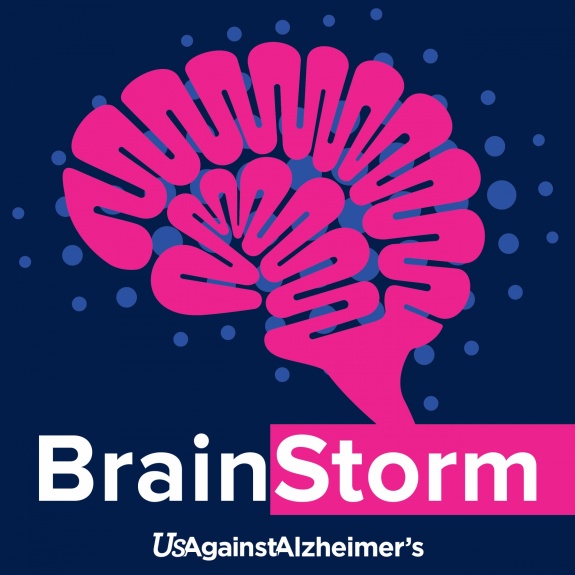Subscribe on your favorite player
Listen on Apple Podcasts Listen on Spotify Listen on Stitcher Listen on Google PodcastsJuly 14, 2015
The NOBLE & A4 Studies - Dr. Michael Rafii

About This Episode
With new imaging technology and a greater understanding of the progression of Alzheimer’s guiding clinical trials, there’s hope on the horizon for Alzheimer’s treatment and prevention.
In July’s fascinating Alzheimer’s Talks, Dr. Michael Rafii – Medical Director of the Alzheimer’s Disease Cooperative Study (ADCS), Director of the Memory Disorders Clinic and Assistant Professor of Neurosciences at the University of California, San Diego, and Attending Neurologist at the Shiley-Marcos Alzheimer’s Disease Research Center – joined us to discuss his exciting work on the NOBLE and A4 studies, coordinated by the ADCS.
CLICK THE PLAY BUTTON AT LEFT TO HEAR THE DISCUSSION.
Key Highlights from the Call
- The hallmarks of Alzheimer’s disease are plaques and tangles. Amyloid – which starts as a free-floating molecule that then deposits into plaques – causes changes in the protein “scaffolding” of neurons, resulting in neurofibrillary tau tangles.
- There are several ways to target Alzheimer’s, depending on the stage of the disease: preclinical, prodromal (mild cognitive impairment) or dementia. These include increasing removal of beta-amyloid and/or preventing the beta-amyloid from disrupting tau.
- Better imaging helps us spot biomarkers such as amyloid and tau tangles and test the effectiveness of new compounds. Being able to identify biomarkers has revolutionized our ability to see the disease at its earliest stages and test possible interventions.
- The A4 Study is focused on stopping Alzheimer’s before symptoms appear. The anti-amyloid immunotherapy being tested aims to remove beta amyloid from the brain, preventing the formation of tangles before symptoms begin. The A4 study is a nationwide trial open to people between the ages of 65 and 85 who aren’t currently experiencing any cognitive or memory problems but are at risk of developing Alzheimer’s. You can learn more at a4study.org.
- The NOBLE Study aims to treat those with mild to moderate Alzheimer’s. It’s testing a neuroprotectant pill to interfere with the development of tau tangles. The NOBLE trial is open to people between the ages of 55 and 85 who already suffer from mild to moderate Alzheimer’s. You can learn more at noblestudy.org.
The clinical trials underway are building up critical evidence for the FDA approval process, and Dr. Rafii is optimistic that these compounds are some of the best we have. But we won’t see the results until they have recruited enough participants.
If you don’t qualify for either of these studies but would like to know more about clinical trials, you can contact the ADEAR (Alzheimer’s Disease Education and Referral Center) hotline, sponsored by the National Institute on Aging: 1-800-438-4380.
